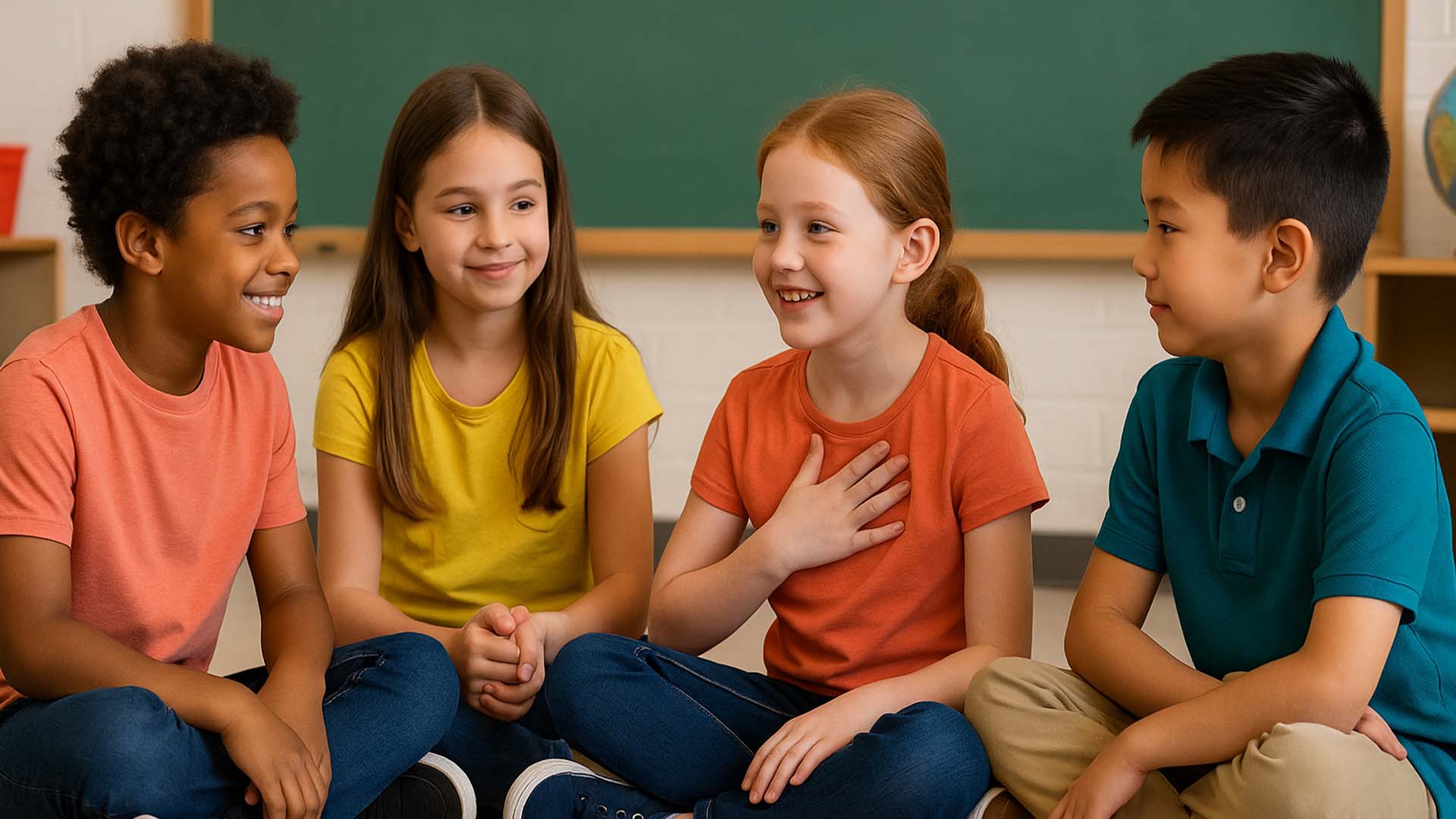Social-Emotional Learning (SEL) is more than just a buzzword in education; it\’s a powerful approach that helps children understand and manage their emotions, build healthy relationships, and make responsible decisions. Think of it as teaching kids the superpowers they need to navigate life\’s challenges and succeed in school and beyond.
Extensive research consistently shows that SEL has incredible benefits for students, teachers, and entire school communities. This article will explore how SEL helps children grow into confident, compassionate, and capable individuals.
Boosting Brainpower: Improved Academic Achievement
When children feel safe, supported, and understand their emotions, their brains are ready to learn! SEL creates an environment where kids can develop crucial social, emotional, and thinking skills, which in turn supercharges their academic learning.
Studies show that children who participate in SEL programs often achieve better grades, higher test scores, improved attendance, and complete their homework more consistently. They become more engaged in school, leading to a significant boost in their overall academic performance.
In fact, research indicates that SEL interventions can lead to an 11 percentile point increase in academic performance, with these positive effects lasting for years!
“SEL programs appear to have as great a long-term impact on academic growth as has been found for programs designed specifically to support academic learning.”
— Mahoney, Durlak, and Weissberg, 2018
Happy Kids, Safe Schools: Promoting Well-being and Safety
SEL acts like a shield, protecting children\’s mental health and creating a positive school environment. By teaching kids how to manage their feelings, build strong friendships, and resolve conflicts peacefully, SEL helps them cope with stress and challenges. Children involved in SEL programs often experience less emotional distress, develop more positive attitudes, and show fewer behavioral problems. They also report feeling safer and more supported at school, enjoying better relationships with their teachers, and feeling a stronger sense of belonging. A wonderful bonus? SEL has been shown to reduce bullying and aggression, making schools happier and safer places for everyone.
Ready for Anything: Skills for Future Success
The skills children learn through SEL are not just for today; they are for life! Kids who develop strong social and emotional skills are better prepared for the future, leading to positive outcomes that can last for up to 18 years. These vital skills significantly increase the likelihood of:
- High school graduation
- Enrollment and completion of college or further education
- Stable, full-time employment
Essentially, SEL helps children build the resilience, self-awareness, and interpersonal abilities they need to thrive in their personal lives and future careers.
A Smart Investment: Benefits for Everyone
Investing in SEL is a smart move! Studies have shown that for every dollar spent on SEL programs, there\’s an estimated $11 return. This means the benefits—like improved academic outcomes, better mental health, and reduced behavioral issues—far outweigh the costs. SEL is also effective for children from all backgrounds, cultures, and communities, whether they live in cities, suburbs, or rural areas. While SEL is universally beneficial, it works best when tailored to fit the specific needs and culture of each community.
Teachers Thrive Too: Benefits for Adults
It\’s not just kids who benefit from SEL! When educators focus on their own social and emotional well-being, they experience higher job satisfaction and less burnout. Teachers who teach SEL often feel more effective in their roles and report lower levels of job-related stress. By building stronger relationships with students and managing classrooms more effectively, SEL creates a more positive and supportive environment for everyone in the school.
Q&A: Your Questions About Social-Emotional Learning (SEL) Answered
Q1: What are the five core competencies of SEL?
A1: The five core competencies of SEL, as defined by CASEL, are self-awareness, self-management, social awareness, relationship skills, and responsible decision-making.
Q2: How can parents support SEL at home?
A2: Parents can support SEL by modeling healthy emotional expression, encouraging empathy, helping children identify and manage their feelings, fostering positive relationships, and involving them in family decision-making. Reading books about emotions and discussing social situations are also great ways to promote SEL.
Q3: Is SEL just about being nice and kind?
A3: While kindness is a component of SEL, it\’s much broader. SEL encompasses a range of skills, including understanding and managing one\’s own emotions (self-awareness, self-management), understanding others\’ emotions (social awareness), building positive relationships (relationship skills), and making thoughtful choices (responsible decision-making). It\’s about developing a holistic set of emotional and social competencies.
Q4: Where can I find more information about SEL?
A4: The Collaborative for Academic, Social, and Emotional Learning (CASEL) is a leading organization in the field of SEL. Their website (https://casel.org/) offers extensive research, resources, and frameworks for implementing SEL effectively in schools and communities.
Sources
- CASEL: What Does the Research Say?








0 Comments